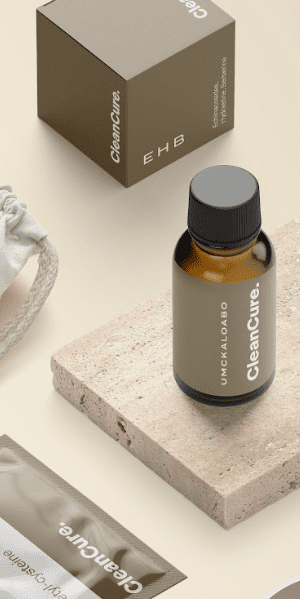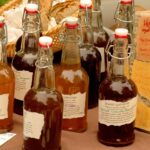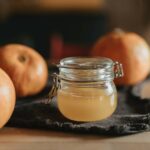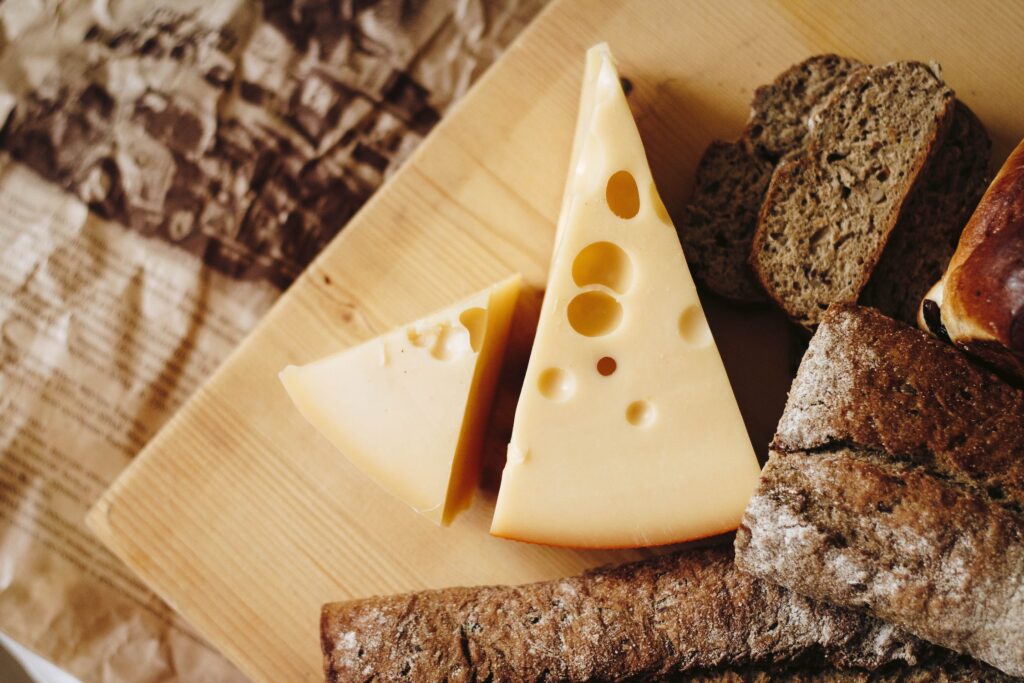
Food allergies can be a major factor in sinus problems. When you understand and address your food intolerances, you can reduce sinus inflammation, alleviate nasal congestion, and improve your overall sinus health.
Here are the common food allergies that cause sinus problems so that you can avoid them, as well as the things you should be incorporating into your diet to alleviate common symptoms. But first, let’s discuss the link between food and sinus infections.
Understanding Food Allergies that Cause Sinus Problems
Food allergies can have a big impact on your sinuses. When you have a food allergy, your body’s immune system reacts to certain foods as if they were harmful invaders. This immune response can lead to sinus inflammation and allergy symptoms, like nasal congestion and post-nasal drip.
When you eat a food you are allergic to, your body releases chemicals, such as histamine, to fight off the perceived threat. This can cause your sinuses to swell and become inflamed, leading to sinus cavities and symptoms like a stuffy nose and difficulty breathing.
Addressing your food allergies can help relieve chronic sinus problems. When you identify and avoid the specific foods that trigger your immune response, you can reduce inflammation in your sinuses and alleviate symptoms like nasal congestion. This can greatly improve your quality of life and reduce the frequency and severity of sinusitis.
Working with an allergy specialist or getting allergy tests, such as blood tests or elimination diets, can help identify the foods that are causing your symptoms. Once you know which foods to avoid, you can make changes to your diet and reduce your exposure to those triggering allergens.
Foods to avoid to lessen allergic sinusitis symptoms
If you have sinus issues, there are certain foods that you might want to avoid. Making changes to your diet can have a big impact on your sinus symptoms and overall quality of life.
1. Dairy products
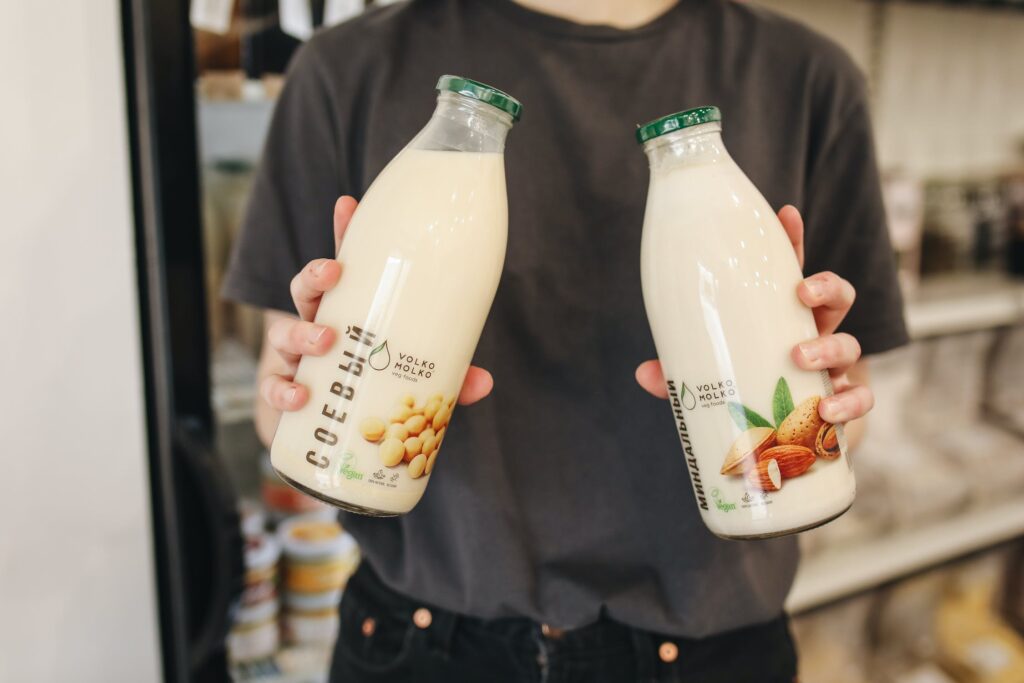
Image Source: Polina Tankilevitch
If you believe that you have food allergies that cause sinus problems, you might want to think twice about having dairy products to avoid milk and egg allergies. That means you’ll have to avoid milk, eggs, cheese, and ice cream. Dairy products can make your sinuses produce more mucus and can even cause the growth of bacteria in your sinuses.
This can make your symptoms worse, make you feel even more congested, and cause adverse reactions. So, it’s a good idea to cut back on these foods if you want to improve your sinus health.
Here are some alternatives to dairy products that you can try instead:
– For milk products, you can try drinking almond milk or soy milk to avoid a milk allergy.
– Instead of cheese, you can opt for dairy-free cheese substitutes made from soy or nuts.
– If you have a craving for ice cream, there are plenty of non-dairy options available, like coconut milk or almond milk-based ice creams.
2. Foods high in histamine
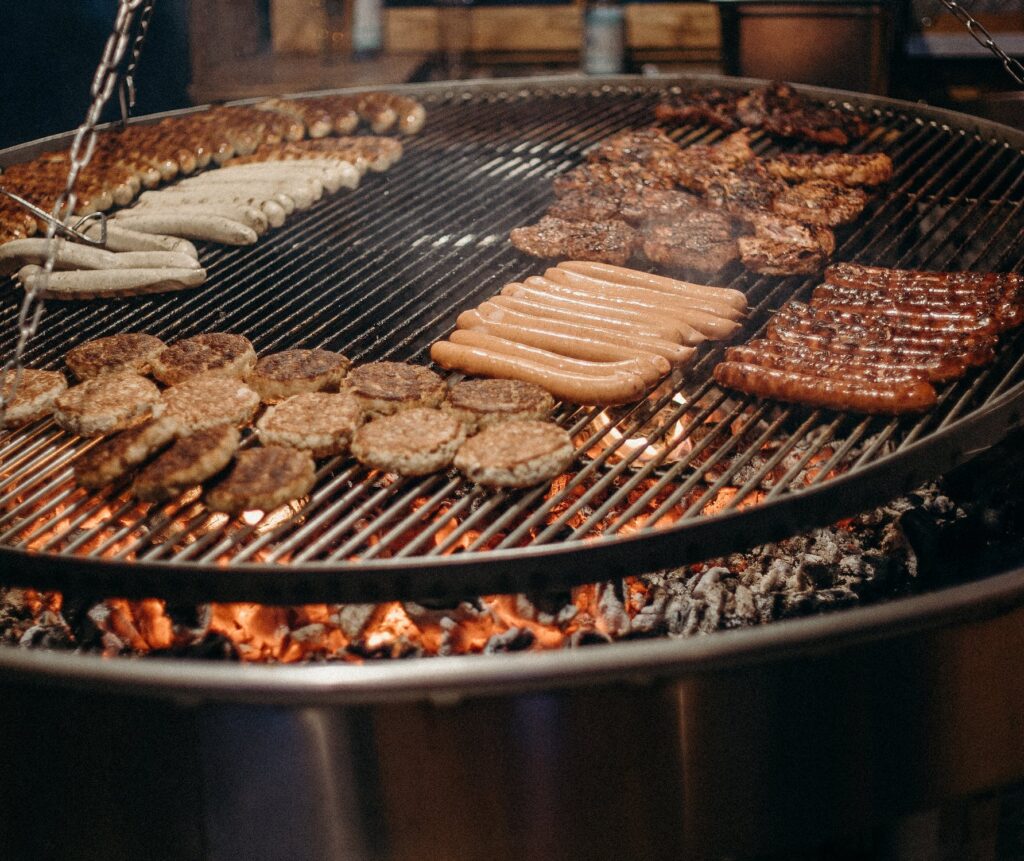
Image Source: Cottonbro Studio
If you have food allergies that cause sinus problems, you might want to avoid foods that are high in histamine. Histamine is a natural chemical in our bodies that helps with our immune response, but some people have a sensitivity to it. When histamine builds up in the body, it can make sinusitis symptoms worse.
Here are some foods that are high in histamine that you might want to avoid if you have sinus problems:
Processed Meat Products: Foods like sausages, hot dogs, and deli meats contain high levels of histamine
Aged Cheeses: Cheeses like blue cheese, Parmesan, and Swiss are aged and have higher histamine levels
Fermented Foods: Foods like sauerkraut, kimchi, and pickles go through a fermenting process, which increases histamine levels
Dried Fruit Products: Dried fruits, especially those with a long shelf life, like raisins and apricots, can have higher histamine levels
Fermented Beverages: Alcoholic drinks like wine, beer, and champagne go through fermentation, which releases histamine
Everyone’s sensitivity to histamine is different, so you may not have a reaction to all of these foods. If you suspect that histamine is a trigger for your sinus problems, it might be helpful to keep a food diary and track your symptoms after eating certain foods.
3. Foods with high sugar content

When you have food allergies that cause sinus problems, you have to be mindful of the foods you eat. Specifically, you should try to avoid foods that are high in sugar. High-sugar foods can worsen sinusitis symptoms by increasing inflammation and promoting the production of excess mucus.
Some examples of high-sugar foods to be cautious of include:
Candy: Sweet treats like chocolates, gummy bears, and lollipops are often high in refined sugars
Soda: Carbonated drinks like cola and lemon-lime sodas are loaded with sugar
Pastries: Sugary pastries such as donuts, cakes, and cookies should be consumed in moderation
Sugary cereals: Breakfast cereals that are coated in sugar should be limited
Ice cream: Although delicious, ice cream can be high in sugar and should be enjoyed in moderation
It’s okay to indulge in these sugary foods occasionally, but consistently having a diet high in refined sugars can adversely affect your sinus health. Eating too much sugar can lead to increased inflammation and excess mucus production, making your sinus problems worse.
Be aware of the sugar content in the foods you consume and try to choose healthier alternatives whenever possible. When you make mindful choices and are cautious of high-sugar foods, you can support your sinus health and improve your quality of life.
4. Chocolate
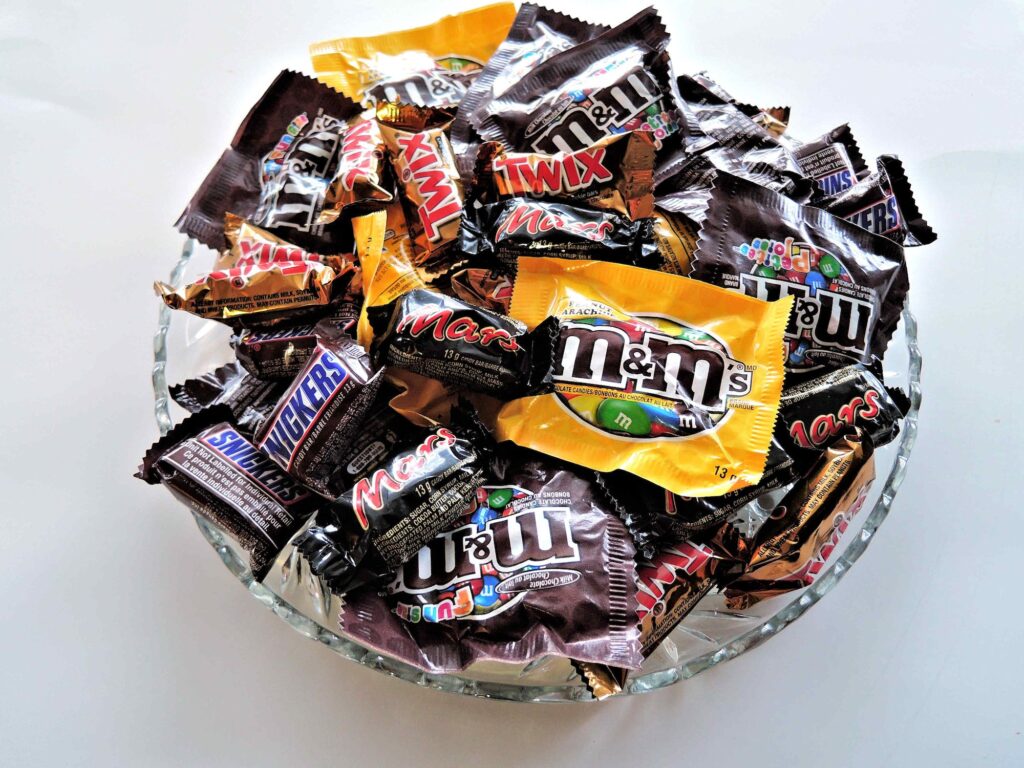
When it comes to chocolate and sinus health, not all kinds of chocolate are created equal. If you have food allergies that cause sinus problems, choose the right kind of chocolate to enjoy.
Milk chocolate should be avoided if you have sinus issues. This is because milk chocolate contains both milk and refined sugar, which can make your sinus symptoms worse. The milk in chocolate can increase mucus production, leading to congestion and a stuffy nose. Refined sugar can also trigger inflammation, making it harder for your sinuses to drain properly.
But don’t worry! There is still a type of chocolate that you can enjoy without causing sinus problems. Dark chocolate is a better choice for people with sinus issues. It usually has less milk and more cocoa, which means less mucus production. Dark chocolate also contains less refined sugar, which reduces the risk of inflammation. So if you love chocolate, opt for dark chocolate instead.
Even though dark chocolate is a better choice, it’s still important to enjoy it in moderation. Too much chocolate, regardless of the type, can still have negative effects on your overall health.
5. Foods high in gluten
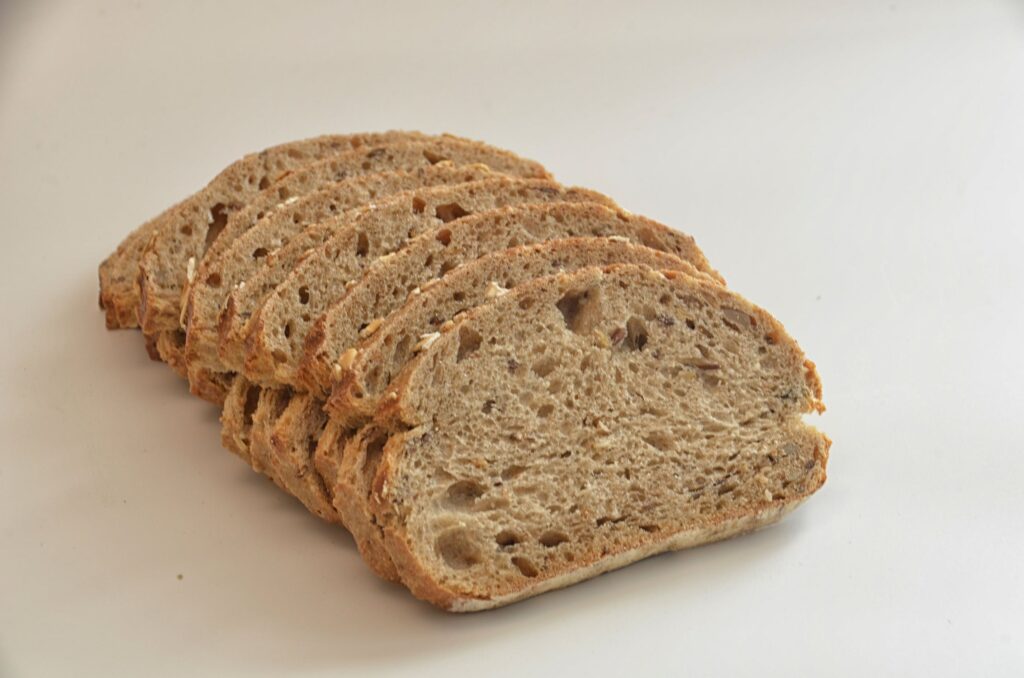
When you have food allergies that cause sinus problems, certain foods can make symptoms worse. One type of food that you might want to avoid is glutenous food. These are foods that contain a protein called gluten.
Gluten can contribute to nasal congestion, which is when your nose feels stuffy and blocked. If you already have sinus problems, eating glutenous foods can make your symptoms worse.
So, which foods should you avoid? Here are some common gluten-containing foods to steer clear of when you’re dealing with sinus issues:
Bread: This includes all types of bread, like white bread, whole wheat bread, and even gluten-free bread if it contains other glutenous grains.
Pasta: Regular pasta made from wheat flour should be avoided. Look for a gluten-free pasta made from alternative flour like rice or corn instead.
Cakes and cookies: These sweet treats often contain gluten due to the presence of wheat flour. Opt for gluten-free options or try baking your own using gluten-free flours.
Cereal: Many cereals contain gluten, especially those made from grains like wheat, barley, and rye. Look for gluten-free cereals made from rice, corn, or oats.
Avoiding glutenous foods may help alleviate your allergic sinusitis symptoms during flare-ups. So, it’s best to check the labels or ask someone if you’re unsure if a food contains gluten. Taking care of what you eat can make a difference in how you feel when dealing with sinus problems.
6. Foods high in salicylates
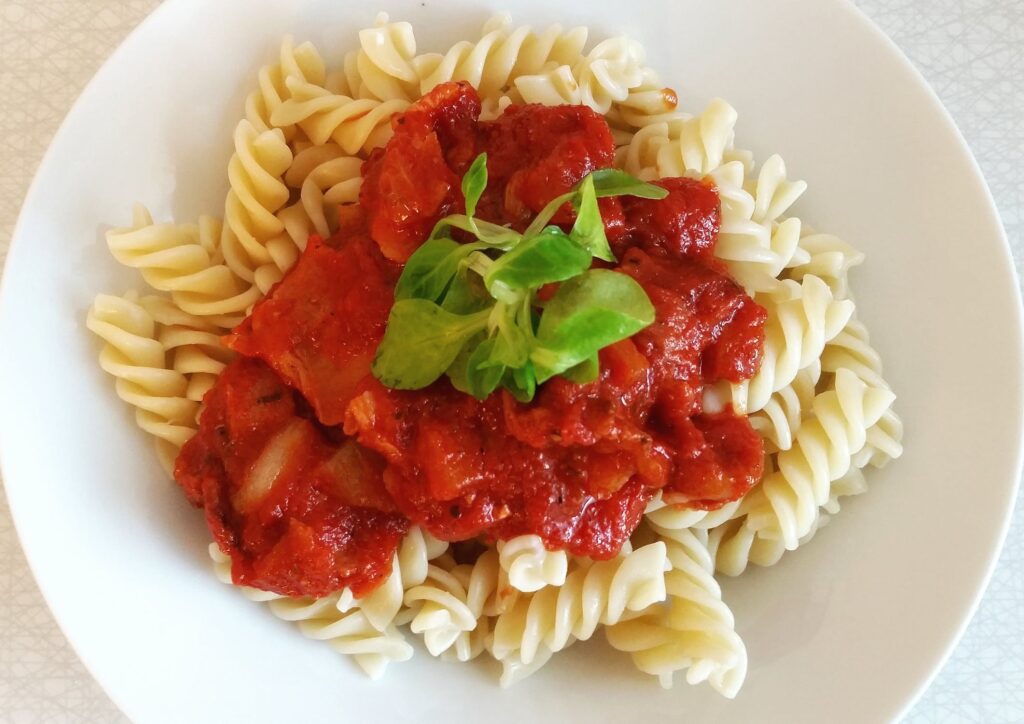
Image Source: Daniel Lindstrom
If you have food allergies that cause sinus problems, it’s important to know which foods can not help you combat common conditions of sinusitis. One group of foods that can worsen sinusitis symptoms is those high in salicylates. Salicylates are natural compounds found in certain fruits, vegetables, legumes, grains, and even some herbs and spices.
Here are four examples of foods that are high in salicylates and may trigger allergic reactions, especially when you have salicylate hypersensitivity:
Tomatoes: If you’re sensitive to salicylates, eating canned tomatoes, tomato sauce, and other processed tomato products may trigger symptoms like nasal congestion and sinus pressure.
Spinach: This leafy green vegetable is packed with nutrients, but it’s also high in salicylates, which can exacerbate sinusitis symptoms.
Oranges: Citrus fruits like oranges are known to be high in salicylates, so they may contribute to your sinus issues.
Lentils: Legumes like lentils are a great source of protein and fiber, but they also contain salicylates that can potentially worsen your sinus problems.
If you suspect that salicylates are causing your sinus issues, a healthcare professional may recommend a salicylate-free diet. This means avoiding foods that are high in salicylates, like the ones mentioned above. By eliminating these foods from your diet, you may experience improvements in your rhinosinusitis symptoms.
7. Alcoholic products

When you believe that you have food allergies that cause sinus problems, certain drinks can make your symptoms worse. One type of drink that you might want to avoid is alcoholic beverages. These drinks can have a negative impact on your sinus health.
Alcoholic beverages, like wine and beer, can contain histamines. Histamines are natural compounds that your body produces during an allergic response. They play a role in your immune system and can cause swelling and congestion in your sinuses.
When you consume alcoholic beverages that contain histamines, it can trigger these symptoms and make your sinus problems worse. You may experience a stuffy or blocked nose, difficulty breathing, and an increase in the production of mucus.
In addition to sinus swelling and congestion, alcohol consumption can also lead to other symptoms that can worsen your sinus problems. These symptoms may include headaches, facial pain or pressure, sneezing, and a runny nose.
It’s important to note that not everyone with sinus problems will experience these symptoms after consuming alcoholic beverages. However, if you notice that symptoms worsen after drinking alcohol, it may be wise to avoid or limit your intake.
Everyone’s body is different, and certain foods and drinks can affect people in different ways. It’s always best to listen to your body and pay attention to how it reacts to different substances.
What to Eat and Avoid to Prevent Sinus Inflammation
When you have food allergies that cause sinus problems, know which foods can worsen your symptoms and which ones can help relieve them. Making smart choices about what you eat can go a long way in preventing sinus inflammation and improving your overall sinus health.
Ginger and Garlic
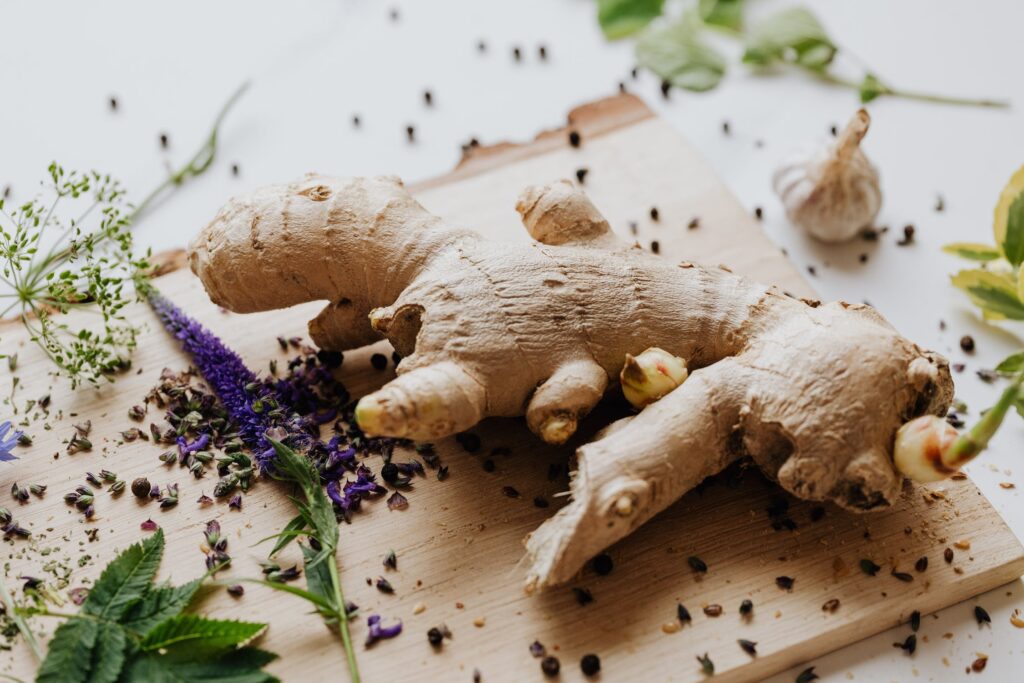
Image Source: Karolina Grabowska
When it comes to relieving food allergies that cause sinus problems, garlic and ginger can be beneficial for you. These natural ingredients have amazing properties that can reduce inflammation and fight off viruses.
Garlic is known for its strong taste and smell, but did you know that it also has antibacterial and antifungal properties? These properties can help reduce inflammation in your sinuses and fight off any bacterial or fungal infections that may be causing your symptoms. Garlic can also fight viruses, which is great news if you’re dealing with a viral infection that’s causing your sinus problems.
Ginger, on the other hand, has incredible anti-inflammatory and antioxidant properties. This means that it can speed up the healing process and reduce discomfort in your sinuses. But that’s not all – ginger also has antihistamine properties, which can help with allergies and sinus pain. So if you’re dealing with sinus problems caused by food allergies, ginger can be a great addition to your treatment plan.
Incorporating garlic and ginger into your diet can be as simple as adding them to your meals. You can try adding crushed garlic to your stir-fries or soups, and ginger can be brewed into a warm cup of ginger tea. Just make sure to consult with a healthcare professional if you have any underlying health conditions or are taking medications.
Hot Peppers
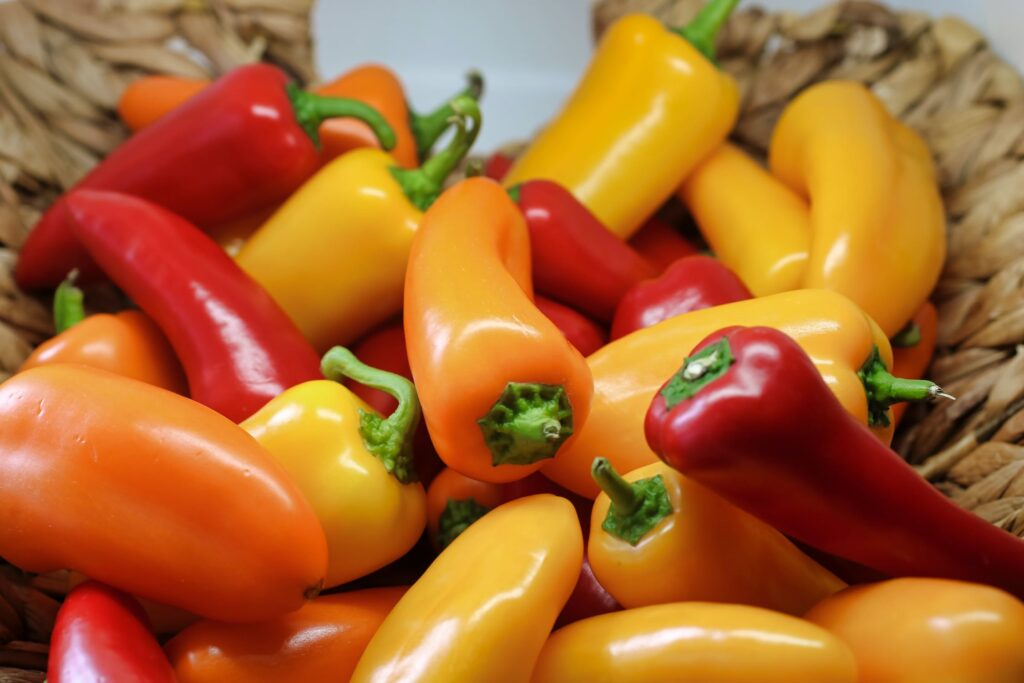
Including peppers in your meals can be a great way to reduce sinus congestion and improve your sinus health if you have food allergies that cause sinus problems. Peppers, like bell peppers and chili peppers, contain a compound called capsaicin.
Capsaicin is what gives peppers their spicy taste. But did you know that it can also help ease pain, stimulate your immune system, and reduce inflammation in your sinuses? When you eat spicy foods with capsaicin, it can help to open up your nasal passages and promote better airflow. This can relieve nasal congestion and help your sinuses drain properly.
Capsaicin can also provide pain relief. It blocks pain signals, which can help reduce the discomfort and pressure you may feel in your sinuses.
However, it’s important to note that consuming spicy foods in excess can have some potential side effects. Eating too much spicy food can cause abdominal pain, indigestion, and heartburn. It’s best to listen to your body and consume peppers in moderation if you experience any of these symptoms.
Including peppers with your meals can be a simple and flavorful way to improve your sinus health. Talk to a naturopathic healthcare professional if you have any concerns or if you’re unsure about how much spicy food is right for you.
Antioxidants
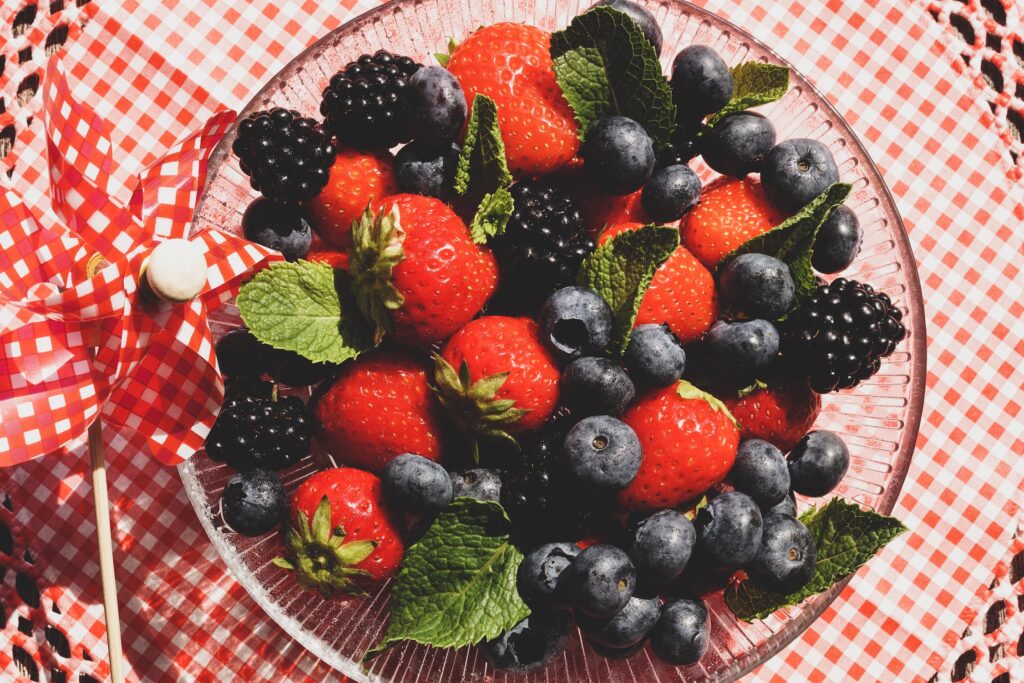
Image Source: Susanne Jutzeler, suju-foto
When it comes to fighting and preventing sinus inflammation caused by food allergies, antioxidants are your secret weapon. These helpful compounds can help protect your body from harmful free radicals, which can contribute to chronic sinusitis. Antioxidants work by neutralizing these free radicals and reducing inflammation in your nasal passages.
One of the key benefits of consuming antioxidants is that they can help protect your mucus membrane. The mucus membrane is a thin layer of tissue that lines your nasal cavities and helps trap allergens and irritants. When this membrane becomes inflamed, it can lead to nasal congestion and discomfort.
So, which foods are rich in antioxidants? Add a combination of foods: berries like blueberries, strawberries, and raspberries are packed with antioxidants, as well as vitamins and minerals that help boost your immune system. Kiwi, pumpkin, papaya, sweet potatoes, and pineapple are also great sources of antioxidants. Including these foods in your diet can provide your body with the nutrients it needs to fight inflammation and promote sinus health.
Remember, when it comes to antioxidants, the more the merrier! Try to include a variety of antioxidant-rich foods in your meals to maximize their benefits. Taking care of your sinuses by consuming antioxidants can help improve your quality of life and reduce food allergies that cause sinus problems.
Hydrating Liquids
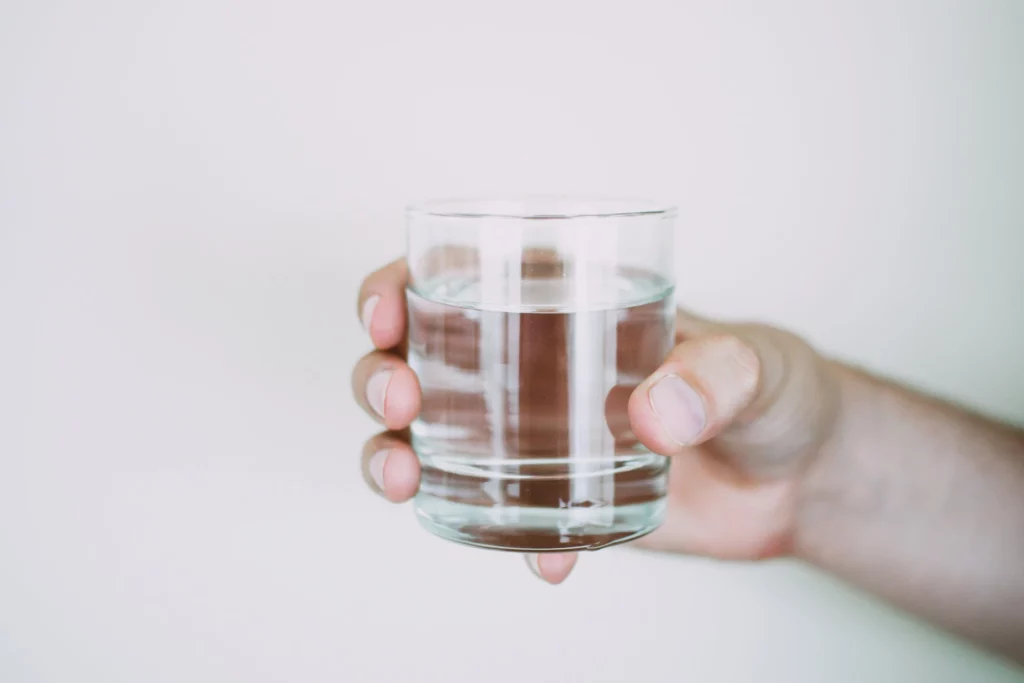
Staying hydrated is super important to prevent sinus inflammation caused by food allergies. When you don’t drink enough water, your body gets dehydrated. This dehydration can lead to thickened mucus in your nasal passages, making it harder for your body to get rid of allergens and irritants. This can then cause your sinuses to become inflamed and uncomfortable.
When your body doesn’t have enough water, it can also create an ideal environment for bacteria to grow. Bacteria love thick mucus and can cause infections, like sinusitis, which can make your symptoms even worse.
To stay hydrated and keep your sinuses healthy, it’s recommended that you drink around 8 cups (64 ounces) of water each day. Drinking enough water can help thin out the mucus in your nasal cavities, making it easier to flush out food allergens and irritants. It also helps to keep your sinuses moisturized and functioning properly.
So, next time you’re feeling thirsty, grab a glass of water to help fight food allergies that cause sinus problems. Stay hydrated, and keep your sinuses happy and healthy!
Conclusion
Certain food allergies can indeed cause sinus problems. Research has shown that food allergies can trigger a condition called allergic rhinitis, which is inflammation of the nasal passages. This can lead to symptoms such as nasal congestion, sinus pressure, and post-nasal drip.
Food allergies are quite common, affecting approximately 8% of children and 4% of adults. When you have a food allergy, your immune system overreacts to certain foods and releases chemicals, such as histamine, which can cause an inflammatory response in the body. This inflammation can affect the sinuses and lead to symptoms similar to those of seasonal allergies or a cold.
If you suspect that your chronic sinusitis or acute sinusitis is due to food allergies, it’s important to seek medical advice. Allergy specialists can perform tests, such as blood tests and food allergy testing, to determine which foods you are allergic to. Once the problematic foods have been identified, the most effective treatment approach is to avoid consuming those foods.
In some cases, antihistamine medications may be prescribed to help manage symptoms. Additionally, nasal sprays or nasal irrigation can help alleviate nasal congestion and reduce inflammation. However, it is also important to work with a healthcare professional like CleanCure to determine the best allergy treatment plan for your specific needs if you believe you have food allergies that cause sinus problems.
